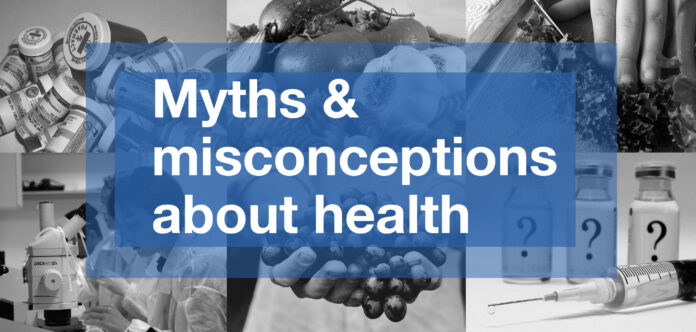What do you think of when you hear the word ADHD? Do you think of a hyperactive child disrupting a classroom? Do you think of an overly impulsive child? Do you think of a kid who will inevitably turn to substance abuse? Do you think that kids with ADHD just want attention?
These are the types of thoughts many people have when they think of a person with Attention-Deficit/Hyperactivity Disorder. The misconceptions people have about ADHD tend to both downplay the seriousness of the disorder and erase the experience of it. Unfortunately, many people with the disorder get stigmatized as a result of these myths. I have seen this stigma from firsthand experience.
My older brother has ADHD and I remember watching him struggle. He was ridiculed by his classmates; they called him crazy. His teachers labeled him as a troublemaker and he became notorious for his behavior. Nobody ever took his disorder into consideration and he was either perceived as a “bad kid” or as having a learning disability. My mother had to fight the school system from placing him into special education. These constant struggles caused him to resent school. He felt like an unwanted burden, so he stopped going.
Myth: ADHD is not a real disorder.
There are a lot of people who don’t think that ADHD is a real disorder. People with ADHD get marginalized because their disorder is not as easily diagnosable in the biomedical world. Since there is no single scientific test such as a blood or brain exam that can be used to diagnose ADHD, it gets reduced to a “fixable” behavioral problem. The problem is that ADHD does not fit a strict category and is still being understood by professionals, so it’s no wonder why many people misunderstand it. However, ADHD is a disorder just like any other. It may not have a single treatment or method of diagnosis, but that does not make it any less of a real impairment.
There is a tendency to associate ADHD with bad parenting. The logic is that these kids weren’t properly disciplined, it isn’t that they actually have a disorder. I remember my mother feeling inadequate and that it was her fault that my brother acted out so often. She did not understand that the disorder was the root cause of his behavioral problems. My mother was not at fault, but she and many other parents of children with ADHD get blamed for causing the disorder.
Even though the environment plays a role in the development of ADHD, it is not the sole cause. Therefore, parents and schools should not be blamed for the disorder. Parental and educational support are helpful, but it is a medical disorder and should be treated like one, and that may or may not include medication.
Myth: ADHD is a childhood disorder.
Another common misconception is that ADHD is only prevalent in childhood. Plenty of teens and adults deal with ADHD symptoms everyday. Teens often exhibit symptoms from their early childhood, but are less likely to be excused because it seems “childish” to express hyperactivity, inattention or impulsivity. The symptoms in adults with ADHD are not as noticeable; however, many adults still struggle with organizational skills and forgetfulness. They tend to have difficulty keeping jobs and often have trouble maintaining relationships.
As an adult today, my brother still struggles with the symptoms listed above, and many other adults do too. ADHD is not a disorder that magically vanishes when you grow up. It still lingers and creates conflict in an individual’s everyday life.
Myth: Everybody has ADHD these days.
People tend to misinterpret the increased diagnosis of ADHD to be an over-diagnosis. I often hear people say that “everybody has ADHD these days.” This statement reduces the legitimacy of the disorder because it questions the rigidity of its diagnostic process. There are many reasons for the increase in diagnosis. Some studies indicate a correlation between the school accountability policy and ADHD diagnosis. This policy measures the amount of rewards given to schools based on academic test scores and graduation rates. To maximize their rewards, schools had more underachieving students diagnosed and treated for ADHD so they would be put on medications and/or receive testing accommodations.
However, this increase might not be so bad. There are still many individuals with ADHD who go through life undiagnosed and untreated. This is especially seen in people who come from minority groups or whose parents are not familiar with the disorder because they often don’t report any of the symptoms.
ADHD is a serious disorder and a painful reality for many individuals. Making seemingly harmless comments about ADHD adds to the stigma. The misconceptions are widespread and many people don’t look for any information other than what they hear or read, unless the disorder directly affects them or someone they know. Rethink the thoughts you have when you hear the word ADHD. Are they marginalizing? Are they generalizing? Do they reduce the legitimacy of the disorder?
Tiffany Marquez can be reached at tmmarquez@ucdavis.edu.










